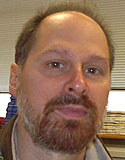非常抱歉,
你要访问的页面不存在,
非常抱歉,
你要访问的页面不存在,
非常抱歉,
你要访问的页面不存在,
验证码:

职称:Chair
所属学校:Yeshiva University
所属院系:Albert Einstein College of Medicine
所属专业:Microbiology and Immunology
联系方式:718.430.3228
Dr. Porcelli's laboratory focuses on the control of acquired immune responses by T cells, which are the master regulatory and key effector cells of host defense and immune tolerance. In broad terms, the research being pursued in the laboratory covers two interrelated areas. The first is to understand the role of regulatory T cells, with particular emphasis on the activities of a specialized T cell subset known as CD1d-restricted NKT cells. These T cells have the highly unusual property of responding to specific glycolipid antigens, which they recognize in combination with a specialized lipid antigen presenting molecule known as CD1d. The laboratory is studying the details of the cellular mechanisms that lead to the uptake and presentation of lipid antigens by CD1d, and is also using synthetic lipid antigens of NKT cells to determine how antigen structure controls the types of immune responses that are stimulated. The ability of lipid antigens that stimulate NKT cells to serve as adjuvants or immune modulators to control the outcome of disease processes is also being studied. The laboratory's second major research area is the study of T cell responses against pathogenic microorganisms, especially Mycobacterium tuberculosis. Work in this area has recently led to significant progress in understanding how mycobacteria block effective host T cell responses, and this information is now being used to further the design of more effective vaccines for prevention of tuberculosis. A major near term goal of this research is to broaden the understanding of how organisms like M. tuberculosis successfully evade eradication by the immune system. The major long term goal is to create a genetically modified live attenuated M. tuberculosis strain that will be safe and effective as a vaccine against tuberculosis.